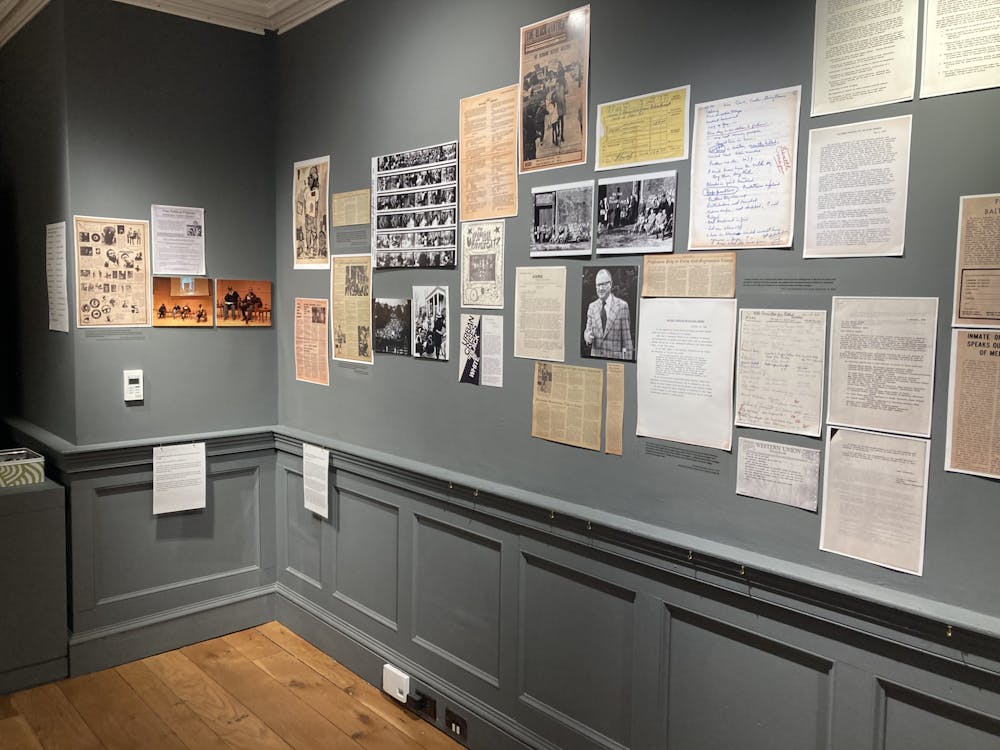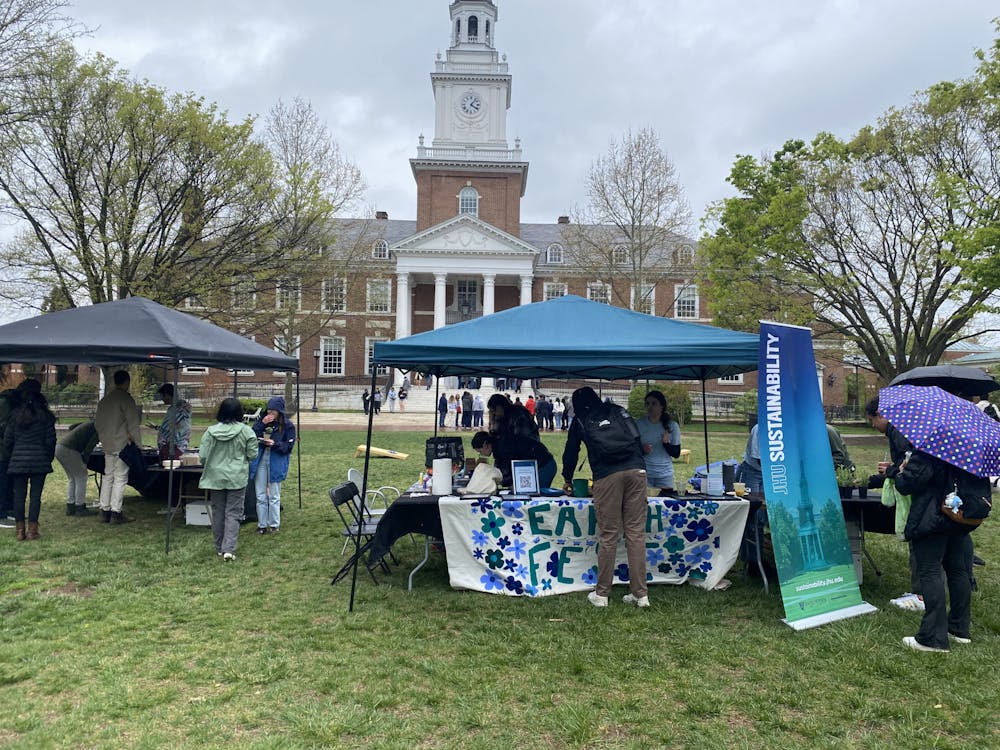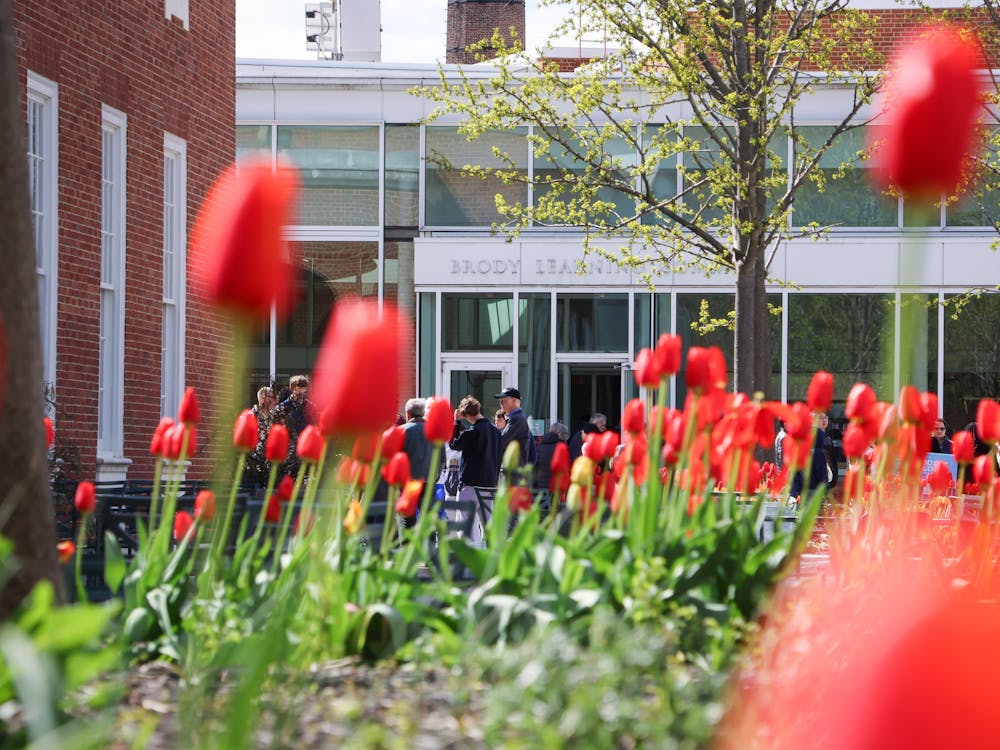The JHU Veritas Forum hosted a discussion in Shriver Hall on Saturday called Identity Crisis: A Discussion of Race, Religion, and What Makes Us Who We Are, which highlighted the complexity of human identity. The talk featured an interview with Charmaine Royal, an associate professor in the Institute for Genome Sciences & Policy at Duke University, and a Q&A session with the audience.
The forum was sponsored by several different groups and organizations, including the Hopkins Dialectic, Stepping Stone Ministry, Johns Hopkins Catholic Community, Agape Campus Christian Fellowship and the Hopkins Christian Fellowship.
Royal’s research focuses on the ethical, psychosocial and societal issues in genetics and genomics. Her recent work with the NCAA involved sickle cell trait testing. She has also studied sickle cell disease in the US, Cameroon, South Africa and Jamaica. Joshua Smith, a pastor for intentional living at the Gallery Church in Baltimore, interviewed Royal.
Royal opened the talk with a discussion on race. Royal said that even though the social construct of race exists in society, there is no genetic basis. Therefore, race does not exist.
“Genetics and fossil evidence tells us that what we see in terms of humans — and the differences that we see — are very small in terms of biology and determine very little about who we are in terms of our identity,” Royal said.
She also pointed to a study which she helped conduct that asked people to define race, ancestry and ethnicity. Royal compared the associations people had to each word, using it to emphasize the ambiguity within the terms themselves.
“When we asked them to define race they used color, they used facial features. That was primarily what they say, and this is really consistent... When we asked people to actually define ancestry many people talked about origin, they talked about geography. When we asked people to define ethnicity, people were all over the place,” Royal said.
Following Royal’s initial remarks, Smith asked Royal about her identity as a Jamaican woman and a Christian, asking questions about her personal views on race, inequality and faith. Royal spoke about her childhood and how her time at Howard University, a historically African-American university, heightened her perception of race.
“We are different, everybody in this theatre is different, but the problem comes when we rank these differences,” Royal said.
Smith then asked Royal about how her work will contribute to the faith community. Royal discussed how her work undermines the social structures for racism while spreading Christian ideals at the same time.
“My hope and prayer is that my work, and how I do my work, and how I publish my work — what I write about and the way I say things — the way I interact with people, even if they think about things in a different way, that I am respectful of them... I hope my work will help change lives and lead people to Christ,” Royal said.
Smith ended the interview by asking Royal if anything could shake her belief in God.
“When he stops doing the things that God does, the things that I see in my life every day,” Royal said.
For the second half of the forum both Smith and Royal answered audience questions ranging from the role of the church in combating racism to why the perception of race in America differs from other countries.
One student asked how much religion should intervene in the political sphere.
“[People of color have] been disenfranchised by system structures and institutions that were based on politics. I think that the church has a prophetic role in speaking to power and speaking on behalf of those that are disenfranchised,” Smith said.
Junior Samantha Lindgren enjoyed listening to Smith, since she felt that he offered a different view to Royal.
“As much as I enjoyed [Royal], I really enjoyed hearing from Josh Smith, because he just has a very real and up-front perspective of the racial issues in America. But I also enjoyed getting [Royal’s] perspective because they came from different angles,” Lindgren said.
Sophomore Keri Frese also enjoyed the talk and the different points of view that the speakers offered.
“I was very impressed with the expertise Dr. Royal offered on the topic. It was a perspective I’ve not heard often spoken from, the genetic side,” Frese said “A point that particularly stood out to me was definitely the addressing of how the question is more than a black and white divide and the inclusion of the entirety of races and how this construct of race has just led to this negative thinking cycle.”















Please note All comments are eligible for publication in The News-Letter.